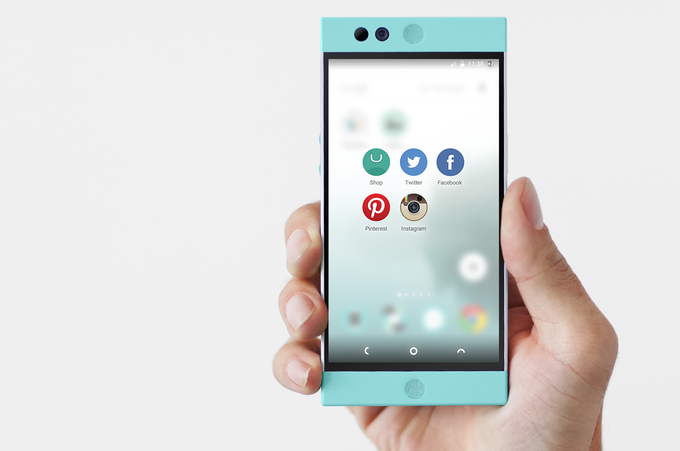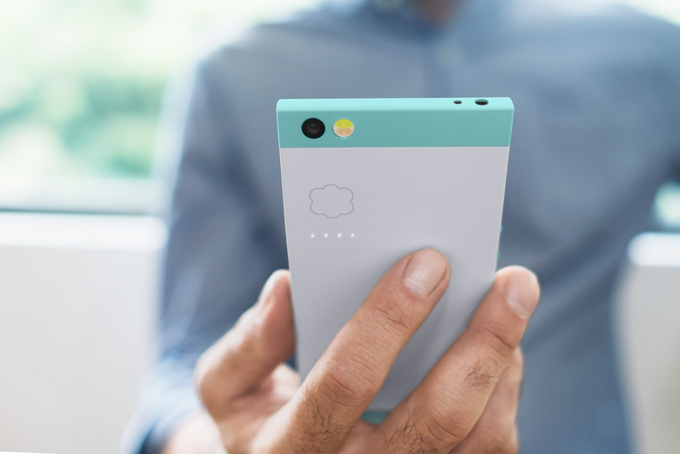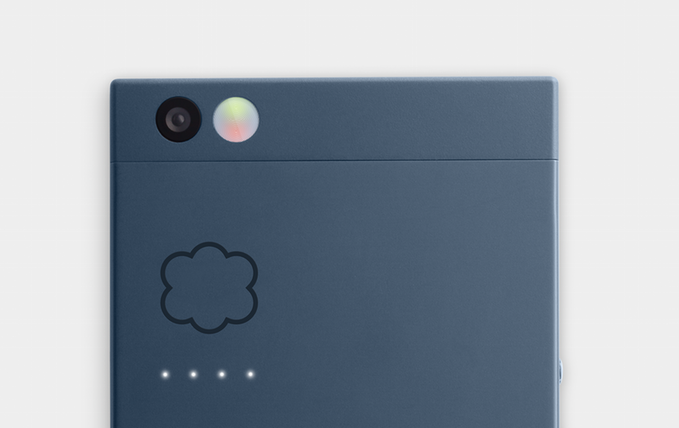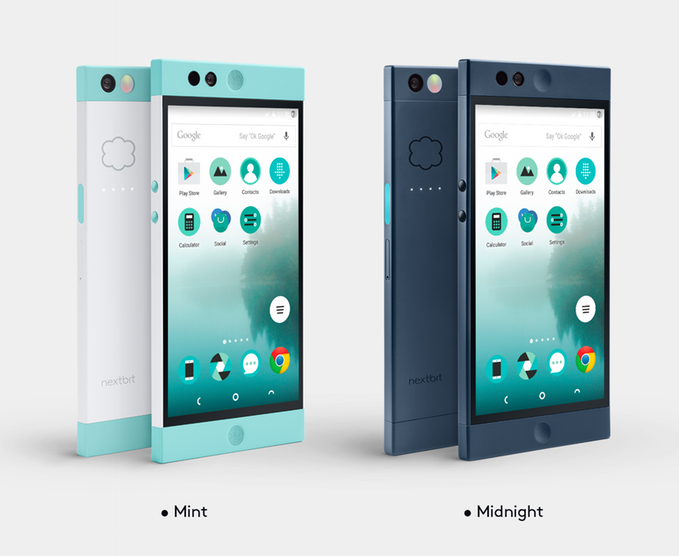True to its word, Nextbit on Tuesday unveiled its debut smartphone. The Robin was conceived by a group of former Android and HTC veterans determined to build a smart smartphone that embraces the cloud like no other.
First things first, the hardware. The Robin features a 5.2-inch 1080p IPS LCD display that's powered by a Qualcomm Snapdragon 808 SoC alongside 3GB of RAM. There's 32GB of local storage, a 13-megapixel rear-facing camera with phase detection autofocus and dual-tone flash, a 5-megapixel forward-facing camera, dual front-facing stereo speakers, a fingerprint sensor and a 2,680mAh battery with quick charging technology.

The Robin also includes the usual array of connectivity options - Bluetooth 4.0 LE, 802.11 a/b/g/n/ac Wi-Fi, NFC and LTE as well as some less common features like USB type-C.
Nextbit partnered with Foxconn to assist with hardware engineering and manufacturing. The end result, as you can see, is a device that strays a bit off the beaten path of curved corners and rounded edges. A series of LEDs on the rear of the device let you know when it's connected to the cloud and actively transferring data.
The specs are representative of an upper-tier mid-range smartphone which in other words, isn't really much to write home about. As you may have guessed, however, the Robin is about much more than cutting-edge hardware.

The Robin augments its local storage with 100GB of storage in the cloud. That's obviously not a new concept but what makes Robin so unique is that it automatically optimizes the local storage when it sees fit by moving certain data to the cloud.
For example, let's say you have just a couple of gigabytes remaining locally. The phone's operating system will pick up on this and move old photos and even apps that you haven't used in a while to your cloud account to free up space locally.
Items that have been moved to the cloud on your behalf still show up locally as shadow icons, or greyed out placeholders. If you need something back, simply tap the icon to re-download it to your device.

Robin also backs up your device whenever it's connected to Wi-Fi and is actively charging as to not burn through your data plan and battery. When attempting to grab something back from the cloud over cellular, you'll be asked for approval first.
Nextbit build Robin to run on a near-pure version of Android. The company said it has taken a light touch with the look and feel of the user interface and that you'll find no bloatware on it. The phone comes with an unlocked SIM, bootloader and open source drivers which allows you to load CyanogenMod or any other ROM you want, all without voiding the warranty (even if you brick it).
There are, however, some obvious concerns. Storing things in the cloud leaves your data vulnerable to loss or theft, even with the best of backup plans and security. And while Nextbit CEO Tom Moss says the company never plans to monetize storage, that could certainly change in the future (if the company was acquired, for example).

The Nextbit Robin is being pre-sold on Kickstarter in your choice of mint or midnight color schemes (the former looks like a refined version of the Jolla smartphone). More than a thousand backers have pledged close to $400,000 of the campaign's $500,000 goal in the few hours since it went live. A pledge of $349 is required to reserve a Robin (the $299 early bird special has already sold out). Nextbit says it plans to begin shipping their smartphone in February 2016 loaded with Android 6.0 Marshmallow.